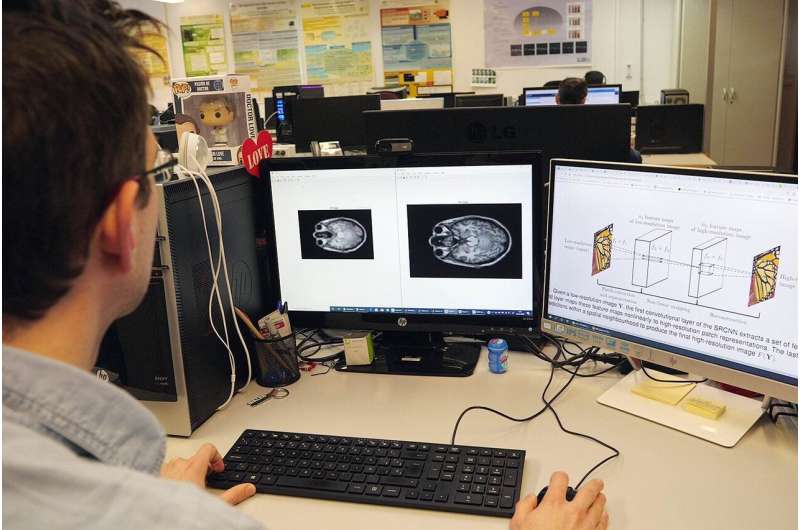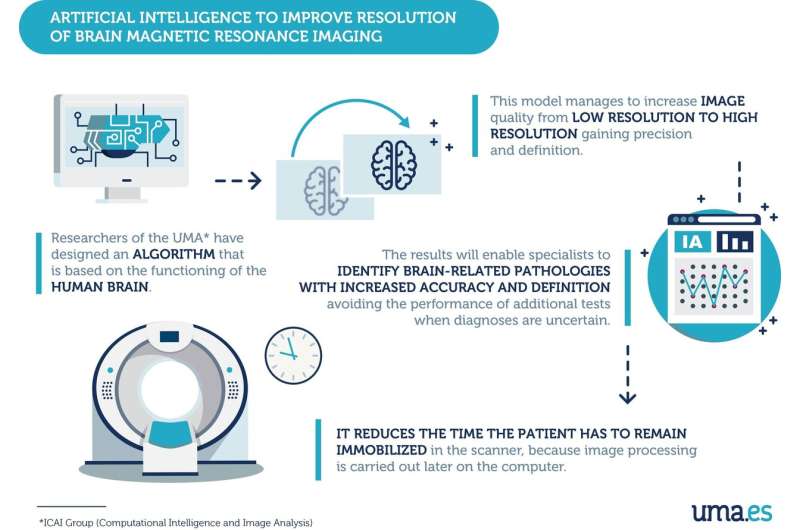Artificial intelligence to improve resolution of brain magnetic resonance imaging

Researchers of the ICAI Group–Computational Intelligence and Image Analysis–of the University of Malaga (UMA) have designed an unprecedented method that is capable of improving brain images obtained through magnetic resonance imaging using artificial intelligence.
This new model manages to increase image quality from low resolution to high resolution without distorting the patients' brain structures, using a deep learning artificial neural network –a model that is based on the functioning of the human brain–that "learns" this process.
"Deep learning is based on very large neural networks, and so is its capacity to learn, reaching the complexity and abstraction of a brain," explains researcher Karl Thurnhofer, main author of this study, who adds that, thanks to this technique, the activity of identification can be performed alone, without supervision; an identification effort that the human eye would not be capable of doing.
Published in the scientific journal "Neurocomputing," this study represents a scientific breakthrough, since the algorithm developed by the UMA yields more accurate results in less time, with clear benefits for patients. "So far, the acquisition of quality brain images has depended on the time the patient remained immobilized in the scanner; with our method, image processing is carried out later on the computer," explains Thurnhofer.

According to the experts, the results will enable specialists to identify brain-related pathologies, like physical injuries, cancer or language disorders, among others, with increased accuracy and definition, because image details are thinner, thus avoiding the performance of additional tests when diagnoses are uncertain.
Nowadays, the ICAI Group of the UMA, led by Professor Ezequiel López, co-author of this study, is a benchmark for neurocomputing, computational learning and artificial intelligence. The Professors of the Department of Computer Science and Programming Languages Enrique Domínguez and Rafael Luque, as well as researcher Núria Roé-Vellvé, have also participated in this study.
More information: Karl Thurnhofer-Hemsi et al. Deep learning-based super-resolution of 3D magnetic resonance images by regularly spaced shifting, Neurocomputing (2019). DOI: 10.1016/j.neucom.2019.05.107




















